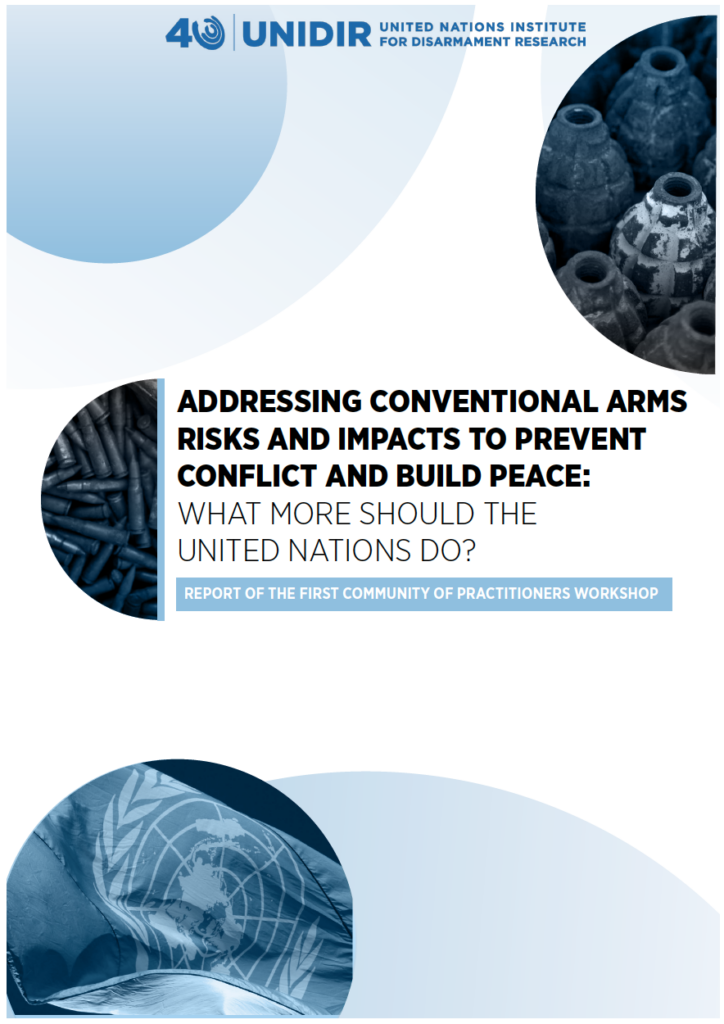The impact of armed conflict extends far beyond casualties in battle, often leading to forced migration, long-term refugee problems, the destruction of essential infrastructure and services, damage to social, political and economic institions, and more broadly, negatively affecting development. Although the motives behind armed violence may differ from context to context, the use of arms to perpetrate violence is a constant that is often poorly accounted for when seeking to prevent conflict. In order to better understand the dynamics around armed violence and how conventional arms control can be better leveraged by the United Nations (UN) to prevent it, in May and June 2020 the United Nations Institute for Disarmament Research (UNIDIR) convened a series of online meetings in a Community of Practice (CoP) workshop. This report captures the themes raised in the CoP sessions, which will serve to inform and guide further research and dialogue on integrating conventional arms control into conflict prevention and management.
Citation: Simon Yazgi, Hardy Giezendanner and Himayu Shiotani (2020) "Addressing conventional arms risks and impacts to prevent conflict and build peace: What more should the United Nations do?", UNIDIR, Geneva.
Teaser: Report of the First Community of Practitioners Workshop
Sponsor Organizations: This research is supported by the Governments of Ireland, the Netherlands, Switzerland and the United Kingdom of Great Britain and Northern Ireland.
